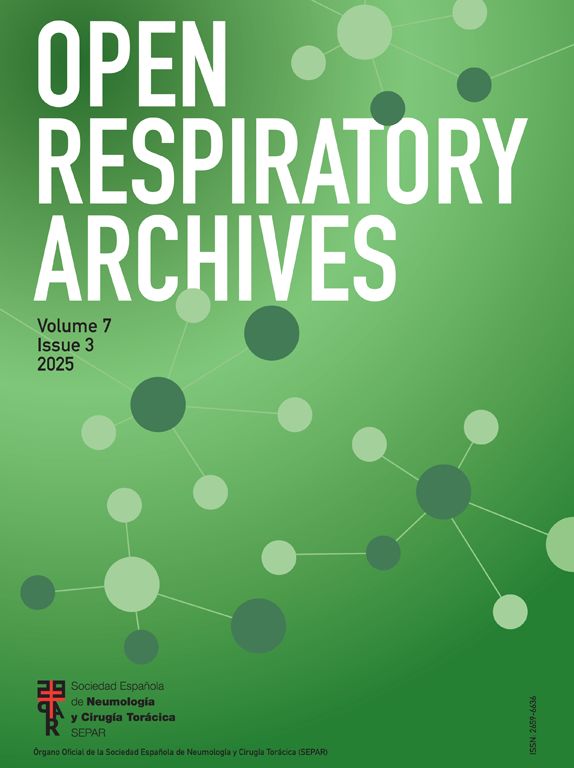A 30-year-old, non-smoker female presented a medical history of multiple respiratory infections during her childhood, as well as multidrug-resistant pulmonary tuberculosis with intracranial extension. She had a history of several treated pneumatoceles and recurrent bronchiolitis. Furthermore, she had been diagnosed with atopic dermatitis and multiple cutaneous abscesses, onychodystrophy and recurrent esophageal candidiasis, including one episode of esophageal impaction.
The patient visited the emergency department due to cough with expectoration. Pseudomonas aeruginosa was isolated as the cause. Physical examination revealed dorsal scoliosis, delayed permanent dentition, and facial features that included a slightly protruding forehead and broad base of the nose. Laboratory results indicated eosinophilia (1600cells per microliter). Given the medical history, an immunodeficiency study was ordered, which revealed high Immunoglobulin E (IgE) levels (1050international units [IU]/milliliter [mL]). Due to a strong suspicion of Hyper IgE Syndrome (HIES), scoring was conducted in accordance with criteria from the US National Institutes of Health (NIH), which resulted in a score of 55 points. With these findings, mutation screening for STAT3 and DOCK8 was initiated, which identified heterozygous pathogenic variants in the STAT3 gene (autosomal dominant) and in the DOCK8 gene, associated with an autosomal recessive inheritance pattern.
HIES is a rare primary immunodeficiency that is defined by elevated serum IgE levels and recurrent respiratory and dermatological infections, accompanied by distinctive facial features and skeletal abnormalities.1–3 This condition may also manifest with eosinophilia. These patients often present a broad, asymmetric base of the nose, prominent forehead, and may also have prolonged retention of the primary teeth along with musculoskeletal anomalies, such as scoliosis.3 Our patient exhibited numerous features associated with this syndrome, including an episode of esophageal impaction, which has only been documented in one prior case.4
Frequent dermatological manifestations in HIES patients include eczematoid dermatitis, mucocutaneous fungal infections and the formation of «cold» abscesses, primarily caused by Staphylococcus aureus.3 This condition may also be associated with recurrent respiratory infections from childhood on, leading to the formation of abscesses and pneumatoceles that can become superinfected by Aspergillus fumigatus, P. aeruginosa, Mycobacterium tuberculosis, or non-tuberculosis complex.3 Notably, only 3 previous instances of pulmonary tuberculosis in HIES patients have been described in the literature, which underscores the relevance of our case report. Prior to this report, only one instance of cerebral tuberculoma in a HIES patient had been documented.5
Several genetic mutations have been identified in HIES patients, among which the autosomal dominant mutation of the STAT3 gene is particularly relevant.3 Other mutations with autosomal recessive inheritance, such as DOCK8 and TyK2, have also been described in previous studies. In these cases, the mutations exhibited fewer respiratory infections and lower IgE levels.3 Our patient had an autosomal dominant STAT3 mutation and a recessive DOCK8 mutation, marking the first such case in the existing literature.
The primary approach to treatment of HIES is based on symptom control and prevention of severe systemic diseases.1–3 Our case highlights the importance of infection management in HIES and demonstrates that consistent medical follow-up is critical to maintaining the quality of life of patients with pulmonary involvement.
Informed consentWe have the written informed consent of the patient for the preparation of this publication.
FundingThis study received no specific funding from public sector agencies, the commercial sector, or non-profit entities.
Authors’ contributionsDiego Morena writing and review of the clinical case, Yunelsy Anta bibliography search, Carmen Dbouk bibliography search and case review.
Conflicts of interestThe authors declare no conflicts of interest.





